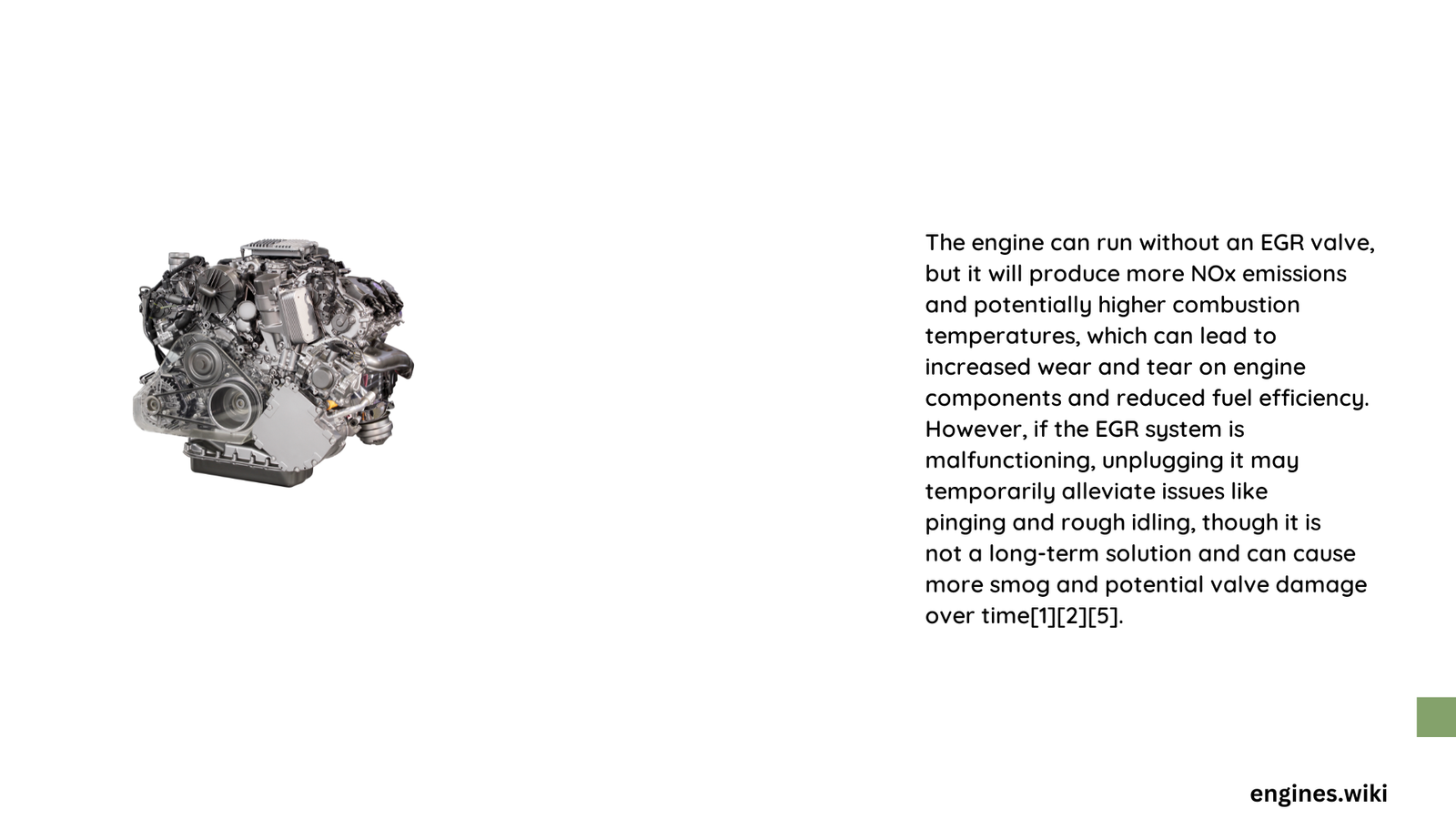Will Engine Run Without EGR Valve: A Detailed Technical Exploration
Quick Technical Overview
Modern vehicle engines can technically operate without an EGR valve, but doing so introduces complex performance, efficiency, and emissions challenges. Removing the Exhaust Gas Recirculation (EGR) system impacts combustion temperatures, NOx emissions, and overall engine management, potentially causing long-term mechanical complications that extend beyond immediate operational capabilities.
Can an Engine Physically Function Without EGR Valve?
Short Answer: Yes, an engine can physically run without an EGR valve, but with significant potential consequences.
Technical Operational Mechanics
- Direct Engine Functionality
- Engine will continue rotating and generating power
- No immediate catastrophic failure occurs
-
Combustion process remains fundamentally unchanged
-
Performance Implications
- Potential increase in combustion temperatures
- Higher risk of detonation/pre-ignition
- Possible reduction in fuel efficiency
What Happens When EGR Valve Is Removed?
| System Impact | Potential Consequence | Severity |
|---|---|---|
| Emissions Control | Increased NOx Emissions | High |
| Engine Temperature | Higher Peak Temperatures | Medium |
| Fuel Efficiency | Potential Reduction | Medium |
| ECU Compatibility | Requires Reprogramming | High |
Why EGR Valve Matters in Modern Engines
Thermal Management
- Reduces peak combustion temperatures
- Prevents excessive nitrogen oxide formation
- Helps maintain optimal engine efficiency
Emission Control Dynamics
- Critical for meeting environmental regulations
- Directly impacts vehicle’s ecological footprint
- Prevents potential legal non-compliance issues
Risks of Permanent EGR Valve Removal
- Increased Environmental Pollution
- Significantly higher nitrogen oxide emissions
-
Potential violation of emission standards
-
Engine Health Complications
- Higher risk of thermal stress
- Potential accelerated component wear
-
Increased likelihood of pre-ignition
-
Legal and Regulatory Challenges
- May invalidate vehicle warranty
- Potential fines in strict emission regions
- Difficulty passing mandatory vehicle inspections
Recommended Alternative Approaches
- Professional EGR system diagnostics
- Cleaning instead of complete removal
- Consulting certified automotive technicians
- Using high-quality replacement components
Technical Recommendations
✅ Do
– Regular EGR system maintenance
– Use high-quality engine oil
– Monitor engine performance indicators
❌ Avoid
– Complete EGR valve removal
– Unprofessional modifications
– Ignoring warning indicators
Conclusion
While an engine can technically run without an EGR valve, the potential risks far outweigh any perceived benefits. Professional maintenance and proper system management remain the most effective strategies for optimal engine performance and longevity.

